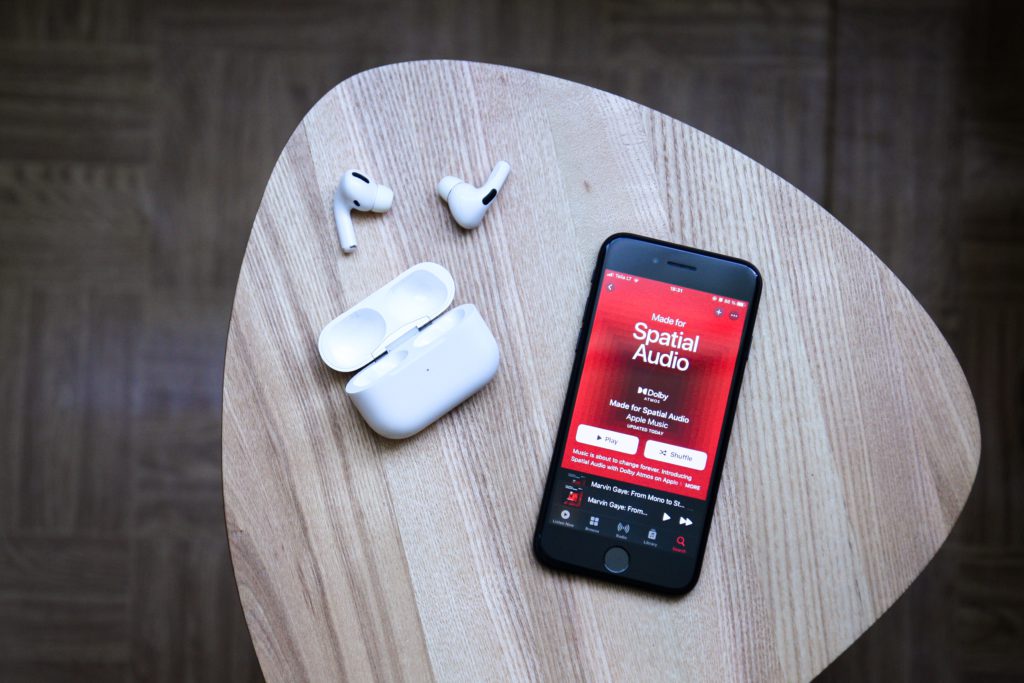In a 2020 briefing, Apple Music announced spatial audio. A higher definition, surround sound option for listeners with certain products. Now, the music company plan to pay music artists more for including this technique within their music.

Following Dolby Atmos for Headphones and PS5 3D Audio for Sony, Apple Music introduced Spatial Audio. This was designed to deliver both surround sound, and high quality audio through the use of headphones. However, only listeners with AirPods or Beats can use this.
This new edition has been around since iOS 14 which was introduced in September. At first, it was only available for both films and Apple TV, but in June 2021, it became available on Apple Music. Growing from an earbud/headphones feature, Apple then introduced smart speakers.
HomePod 2 and HomePod Mini were introduced as high quality speakers which support spatial audio. As with anything Apple release, this type of audio was always going to be partnered with their listening products. What exactly is spatial audio, though?
What is Apple Music spatial audio?
Apple’s spatial audio uses both 5.1, 7.1 and Dolby Atmos signals. It then applies audio filters and adjusts the frequency within each ear. This allows sound to be played in a 3D space. Just like Dolby Atmos for Headphones, which has been around for some time.
So, you will hear sound coming from behind you, in front, and from the sides even though it will be being played directly into your ears. It’s essentially like a 3D cinema experience but for your ears. You will feel fully immersed.
Spatial audio goes the extra mile compared to its competition, however. Using AirPods will allow the technology to track your head movements, to ensure it positions the sound correctly. The same goes for an iPhone or iPad, it takes into account the positioning.
What devices support spatial audio?
When spatial audio was first introduced, the system was working at iOS 14 and iPadOS 14, so your device will have had to have supported this update at the time. With new features added in 2021, the system moved to iOS and iPadOS 14.6.
However, not all devices that support the software update will now be able to access spatial audio. As Apple continues to evolve its updates, more and more users are losing features they once had, in an effort by the company to force product upgrades.
Here is a list of devices which support spatial audio:
- AirPods Pro (1st and 2nd generation), AirPods Max, AirPods (3rd generation)
- Beats Fit Pro, Beats Studio Pro
- iPhone 7 and later
- iPad Pro 12.9‑inch (3rd generation and later)
- iPad Pro 11‑inch
- iPad Air (3rd generation and later)
- iPad (6th generation and later)
- iPad mini (5th generation and later)
- iOS or iPadOS 15.1 or later
- The built-in speakers on a Mac computer with Apple silicon
- Apple TV 4K with tvOS 15 or later
- Apple HomePod (1st and 2nd generation), HomePod Mini
- Audiovisual content from a supported app (e.g. Apple TV+, Disney+, Netflix)
Spatial audio artists to receive higher royalties
With Apple Music trying to push this audio feature so heavily, it’s been suggested they’re now adding an incentive for artists to work with the option. This incentive is higher royalties, which simply means these music artists will be paid more than others.
Bloomberg has said, “Starting next year, the company plans to give added weighting to stream of songs that are mixed in Dolby Atmos technology”. This was in a report about spatial audio. It leads us to believe Apple plans to pay certain artists a higher amount.
Back in January, Apple announced 80% of subscribers worldwide were listening to spatial music, whether it be here and there or all the time. Monthly plays were up by 1,000%, so we can only imagine the statistics almost a year later.



